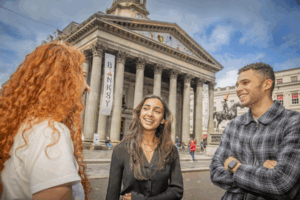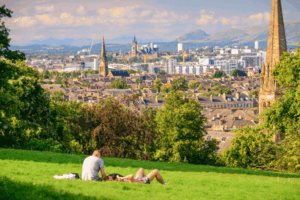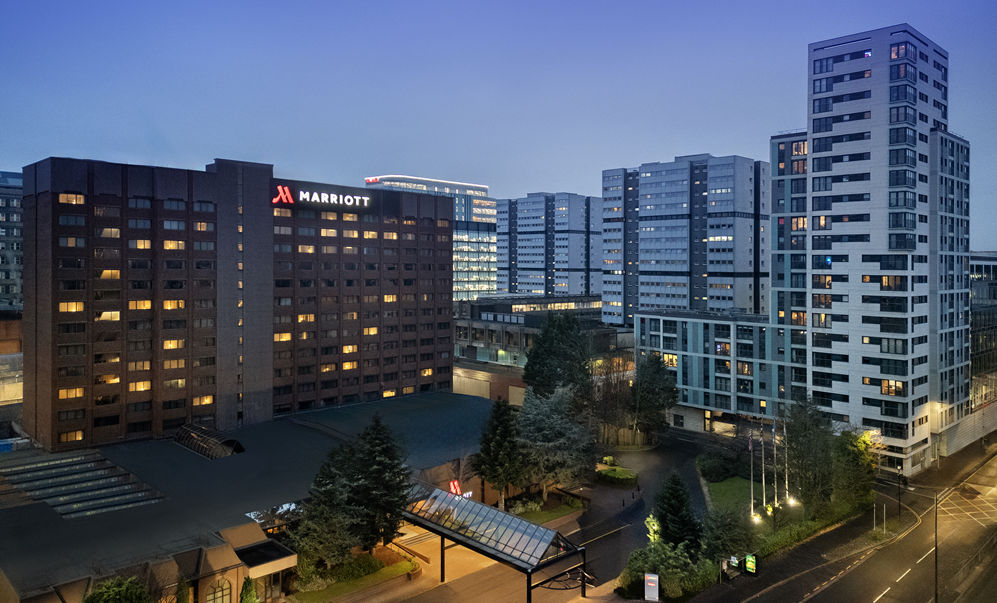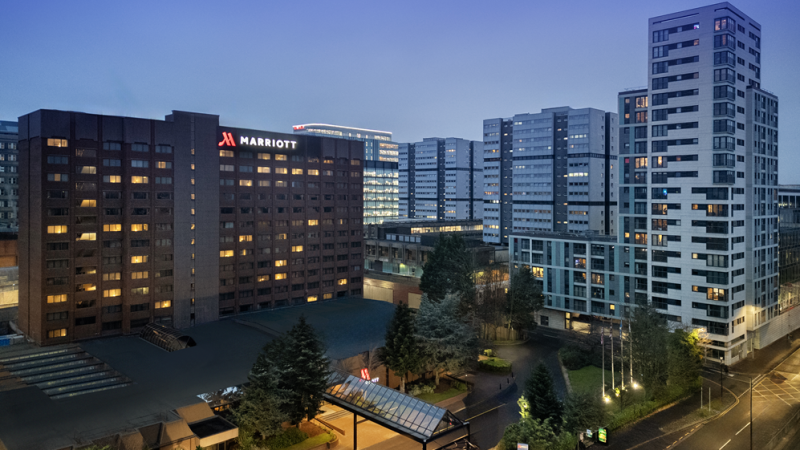People Make Glasgow is the unofficial motto of Scotland’s cultural capital, and an award-winning city brand. It’s a statement that encapsulates the spirit of a location voted as the UK’s friendliest city by Condé Nast Traveller Magazine’s Readers’ Choice Awards, and acclaimed by Rough Guides as the world’s friendliest.
In 2023, Glasgow welcomed nearly 26 million visitors – an increase of 26.6% on the year previous. So, what is it that makes Glasgow special?
“Glasgow is an extremely vibrant city with hundreds of events and activities taking place each year,” declares Alex Harvie, Head of Destination Marketing at Glasgow Life, which leads the city’s Visit Glasgow tourism brand. “The city is compact and walkable, and it’s also a great gateway to the rest of Scotland, including the West Coast Islands. Best of all, people enjoy the warmth of welcome in Glasgow that is very much a part of the Scottish experience.”
Gateway to Scotland
Glasgow’s reputation as a welcoming city has made it a popular destination for major events. Alongside a wide range of top festivals and international competitions, the city hosted the Commonwealth Games in 2014, the UCI Cycling World Championships in 2023, and the World Athletics Indoor Championships in 2024.
“Events play a key role in Glasgow’s visitor experience and attraction,” explains Glasgow Life Head of Events, Julie Pearson. “We were the first city in the UK to become a UCI Bike City and then secured the inaugural UCI Cycling World Championships, which 71% of local people agreed had a positive impact on Glasgow. The event attracted over half a million spectators and 8,000 athletes, offering a significant boost not just to the city’s visitor economy, but to Scotland as a whole.”
As well as a legendary destination for sport, the city is a UNESCO City of Music that showcases traditional and contemporary local culture through events like Celtic Connections – an annual, internationally renowned folk, roots and world music festival. In 2025, the event enjoyed a total attendance of 110,000 across eighteen days of performances.
It’s not just leisure events attracting visitors to Glasgow though. The vibrant Scottish cultural capital has long been recognised as a forward-thinking business hub with a rich intellectual identity. The city is a sustainability leader with a goal to be net zero by 2030, and all three Glasgow universities were ranked within the top 50 of The Guardian’s University Guide 2025.
Positive Impact
Working with universities and conference providers, Glasgow Convention Bureau – which is operated by Glasgow Life’s Head of Tourism, Aileen Crawford, and her team – hosts over 500 conferences a year, attracting more than 150,000 delegates, and contributing £150 million worth of economic benefit to the city. Targeted at specific sectors, over 60% of the Bureau’s conferences are linked to local academics, showcasing the integrated nature of Glasgow events.

“Like engineering, digital technology or life sciences, tourism is a key sector for Glasgow,” Aileen notes. “We get a lovely mix of leisure visitors, event attendees, and conference delegates in the city. All these visitors boost local restaurants, local bars, and that is felt across the supply chain.
“We are lucky to be working with a very warm, receptive city that operates as a team, as well as a local population of businesses and residents that embraces events,” she adds. “We always aim to achieve much more, though, than successfully-delivered events – it’s about finding a way to drive positive impact for the city as a result of hosting.”
The positive impact Aileen mentions can be quantified in the £2.35 billion that visitors spent in the city in 2023, with tourism helping to support 37,000 local jobs. Beyond the numbers, a recent Glasgow Household Survey showed 92% of respondents agreed that tourism positively impacts the local economy, 90% agreed that Glasgow is welcoming to visitors, and as many as 86% said they would like to see more visitors in the city.
Helping to bring more visitors to the city is culture and sport charity Glasgow Life. As well as managing Glasgow Convention Bureau and operating Visit Glasgow, the organisation oversees museums, galleries, music and sport venues and focuses on attracting, creating, and delivering events. Annual Glasgow Life calendar highlights like Celtic Connections and the Merchant City Festival have helped to position Glasgow as a “plug and play” event city when larger opportunities arise.
“Event organisers know they can come to Glasgow confident of success,” Glasgow Life Head of Destination Marketing, Alex Harvie remarks. “For instance, after celebrating Glasgow’s ‘gallus approach to life’, Banksy held his first exhibition for sixteen years here. It was a phenomenal sell-out hit at our Gallery of Modern Art.”
A Real Buzz
More recently, the city’s diverse food and drink scene was on display when the city welcomed The Michelin Guide Ceremony Great Britain and Ireland. The event showcased the strength of Glasgow’s partnership approach as it worked with Scotland Food & Drink and the Scottish Government to bring The Michelin Guide Ceremony to Scotland for the very first time.
“During the awards, Glasgow Life and Scotland Food & Drink hosted media and some of the UK’s top chefs, who were out and about at different city restaurants, creating a real buzz,” Julie reports. “It was a great example of how we join the dots around an event here – making connections and facilitating partnerships.”
Glasgow’s global reputation as a premier host was in evidence when the city was named as the location for the 2026 Commonwealth Games, after the Australian state of Victoria pulled out of hosting next year’s event. The Commonwealth Games Federation needed a location with ready infrastructure and a proven pedigree as a host city. Glasgow – which had ensured the 2014 event in the city was a resounding success – answered the call.
Events Ecosystem
In anticipation of the 2026 Commonwealth Games, Glasgow launched a citywide initiative last November – the Glasgow Event Strategy 2035. This will look to continue Glasgow’s legacy as one of the greatest cities for events in the world.

“When we think about events in Glasgow, we talk about the events ecosystem,” Julie says. “Residents and businesses here are quite united in terms of their outlook for the city. There is a sense of community and engagement, which can be seen in the success of our volunteering programmes for events, so we want to continue building our portfolio.”
Glasgow will certainly do that, and after the Commonwealth Games, the city already has the 2028 UEFA European Football Championship lined up. The legacy of these events will include investment in the city, its venues, and its infrastructure. This filters down into the community, creating a better Glasgow for everyone – both residents and visitors.
“The events we host have helped with the transformation of Glasgow and the people who live here,” Aileen concludes. “Glasgow is a forward-thinking, innovative city. It embraces the need for visionary events driving it forward, while bringing all the community along with it.”





